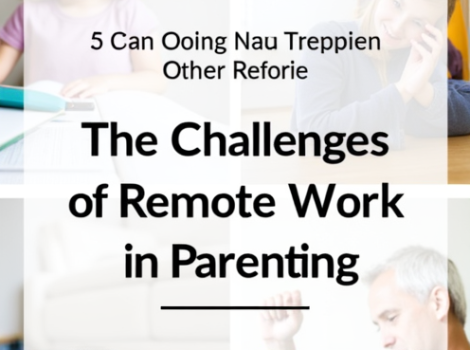Leveraging Extended Family for Parenting Assistance
You might find that tapping into your extended family for parenting assistance can be a game-changer. By recognizing who among your relatives has the time and skills to lend a hand, you can build a supportive network that not only eases your burden but also enriches your child’s life. However, it’s essential to establish clear communication and expectations to prevent misunderstandings. So, how do you identify those family members who can truly make a difference, and what steps can you take to guarantee a harmonious collaboration?
Understanding Collaborative Parenting
Collaborative parenting thrives on the idea that raising children isn’t a solo venture; it’s a shared responsibility. You and your partner, along with extended family, can create a strong support network. When you work together, it lightens the load and makes parenting feel less intimidating.
Imagine tackling homework together or trading off babysitting duties. It’s like forming a superhero team, where each member has special powers!
In collaborative parenting, communication is key. You’ll want to discuss your goals, values, and ways to support each other. It’s all about being on the same page, so your kids get consistent messages.
Plus, it helps everyone feel included and valued.
Don’t forget to celebrate the small victories, too! When your family rallies around you during a tough week, it’s a win for all.
And let’s be honest, who wouldn’t appreciate a little help during those chaotic moments?
Identifying Supportive Family Members
When it comes to parenting, recognizing which family members can provide support is essential. You might’ve a bustling family tree, but not everyone’s ready to jump in and help with the kids. Start by thinking about who’s got the time and energy to lend a hand. Maybe it’s a grandparent who loves storytime or an aunt who’s always up for a playdate.
Consider their interests, too. If you’ve got a cousin who’s a whiz at arts and crafts, they could be a great go-to for creative projects. On the other hand, if you need some extra hands during family gatherings, an uncle who’s great at grilling could be your hero.
It’s also important to think about the family members who are supportive emotionally. A sibling who listens and offers advice can be just as helpful as someone who can babysit.
You want to build a team that not only helps with the kids but also lifts your spirits when you need it. So, take a moment to jot down these family members and their strengths, and get ready to tap into that amazing support system. You’ve got this!
Open Communication With Relatives
To guarantee that your extended family can effectively support you in parenting, open communication is key. You want your relatives to understand your needs, thoughts, and feelings about parenting.
So, why not start by chatting with them? Share your joys, concerns, and even those hilarious moments when your toddler decides to turn dinner into finger painting!
When you keep the lines of communication open, you’re not just sharing information; you’re building a support network that feels more like a team.
For instance, if you’re feeling overwhelmed, let them know. They might’ve some great advice or even offer to help out with babysitting.
Plus, hearing their stories about parenting can give you a good laugh and remind you that you’re not alone.
Setting Clear Boundaries
Setting clear boundaries is essential for effective parenting assistance from your extended family. You want help, but you also need to make sure everyone knows what’s okay and what’s not. Think of boundaries as the invisible lines that keep you and your kids feeling secure while also allowing family to pitch in.
Start by talking openly with your relatives about your parenting style and what you value. If Grandma thinks it’s okay to spoil the kids with candy before dinner, but you don’t, it’s time to speak up! You can say something like, “I appreciate your help, but I’d prefer they’ve a healthy meal first.”
It’s also good to discuss what role each family member will play. If an aunt wants to take the kids for outings, clarify how often this can happen. You don’t want them showing up every weekend with a new adventure!
Creating a Family Support Schedule
Establishing a family support schedule can help everyone stay on the same page and guarantee your kids receive consistent care. First, gather the family members who’ll be involved. This could be grandparents, aunts, uncles, or even close friends. Set a time to chat about what days and times work best for each of you.
Next, map out a weekly calendar. You can use a big whiteboard or just an app on your phone. Make sure to note who’s available when, and don’t forget to include your little ones’ activities. After all, the soccer game isn’t going to wait!
Once you’ve got everyone’s availability, divide responsibilities. Maybe Grandma takes the kids to school on Mondays, while Uncle Bob tackles the Saturday soccer games. Flexibility is key, so don’t hesitate to shuffle things around if needed.
Finally, share the schedule with everyone involved and keep it accessible. A family calendar on your fridge or a shared digital one can work wonders.
Involving Grandparents in Daily Care
Involving grandparents in daily care can be a game-changer for your family dynamic. Imagine having an extra pair of hands to help with everything from school pick-up to meal prep. It’s like having built-in babysitters, and they love it just as much as you do!
Grandparents bring a wealth of experience and affection that can create a nurturing environment for your kids. Plus, they often have stories to share that can spark your children’s imagination.
You might want to set up a regular schedule, so they know when to expect those little ones. Whether it’s helping with homework or playing games, their involvement can ease your daily stress.
And let’s be honest, it’s a great way for grandparents to bond with their grandkids, too. You get a break, they get quality time, and everyone wins!
Don’t forget to communicate openly about expectations. Discuss what you’d like them to help with and make sure they feel valued.
After all, they’re not just caregivers; they’re family, and their love can make your parenting journey a whole lot smoother. So, go ahead, let them join in the fun!
Engaging Aunts and Uncles as Mentors
Engaging aunts and uncles as mentors can bring a fresh perspective to your children’s upbringing. These family members often have unique experiences and fun stories that can inspire your kids. Plus, they’re usually a bit more relaxed than parents, which can make conversations feel more comfortable.
Imagine your child learning how to ride a bike from their cool uncle, who shares tales of his own wobbly adventures!
Let’s face it, aunts and uncles can also provide a different type of guidance. They can help your kids explore interests outside of the norm. Whether it’s art, sports, or science, they might introduce hobbies your kids haven’t even thought of yet.
Kids often look up to their aunts and uncles, viewing them as role models, which can be really motivating.
Encouraging these relationships isn’t just beneficial for your children; it strengthens family bonds too. So, why not set up regular visits or outings?
You’ll find that these moments can create cherished memories. Plus, it gives you a little break while knowing your kids are learning and having fun with trusted mentors. It’s a win-win situation for everyone involved!
Utilizing Siblings for Childcare Help
Siblings can be a fantastic resource for childcare help, offering both support and companionship for your kids. If you’ve got older kids, they can step in as mini babysitters. They mightn’t have a degree in childcare, but they usually know how to play, keep an eye on younger siblings, and even help with homework! Plus, it’s great for building their confidence and responsibility.
Imagine this: while you tackle dinner, your older child can entertain the younger ones with games or movies. They can help out with snack time too—what kid doesn’t love a little extra snack duty?
And for you, this means some much-needed time to focus on other tasks without feeling overwhelmed.
Of course, it’s important to set clear boundaries and expectations. Make sure the older sibling understands their role. You wouldn’t want them to treat babysitting like a free-for-all!
Encouraging this teamwork not only makes your life easier but also strengthens their bond. Siblings can create unforgettable memories together, and you’ll be amazed at how well they can work as a team.
Fostering Strong Family Relationships
Building on the support siblings can provide, fostering strong family relationships is essential for a nurturing environment. When you invest time in connecting with your family, it creates a loving atmosphere where everyone feels valued.
Start by setting aside regular family time—game nights, movie marathons, or just cooking together can work wonders.
Don’t forget about open communication! Encourage everyone to share their thoughts and feelings. You might be surprised by the funny stories or silly jokes that come up. Plus, it helps kids learn to express themselves, which is super important as they grow.
Also, make it a point to show appreciation. A simple “thank you” or a compliment can brighten someone’s day, making them feel special.
And let’s not overlook the magic of traditions. Whether it’s holiday rituals or special family outings, these shared experiences bond you closer.
Celebrating Family Contributions to Parenting
While you might often think of parenting as a solo journey, celebrating the contributions of extended family can enrich your experience and provide invaluable support. When Grandma shares her secret cookie recipe, or Uncle Joe offers to babysit, those moments matter. They not only lighten your load but also create a sense of community around your children.
Think about how much wisdom and love your family brings to the table. Aunts and uncles often have unique perspectives. They can teach kids new skills, whether it’s fishing, gardening, or even how to throw the perfect spiral pass.
Plus, having that extra pair of hands around can turn a chaotic day into a fun family adventure.
Don’t forget to show your appreciation! A simple “thank you” or a heartfelt note can go a long way. Celebrating those family contributions helps everyone feel valued and connected.




